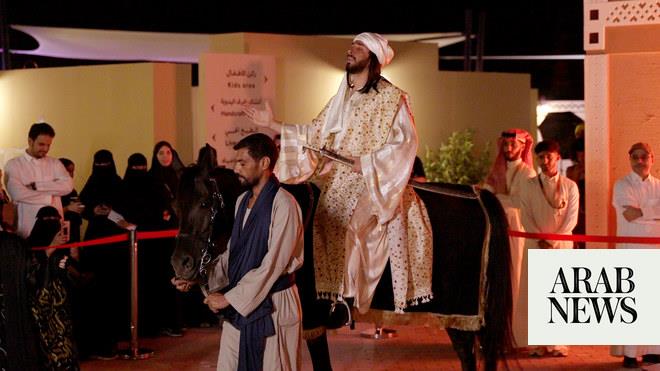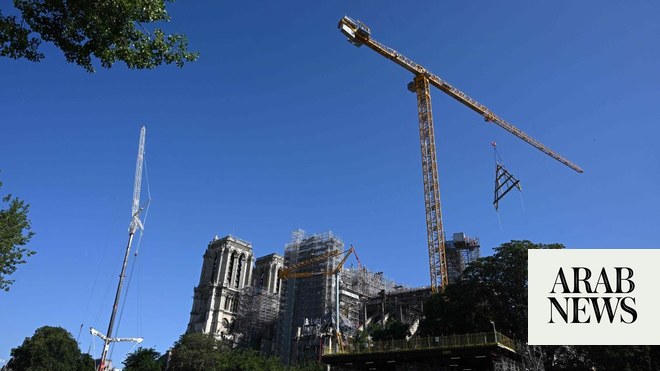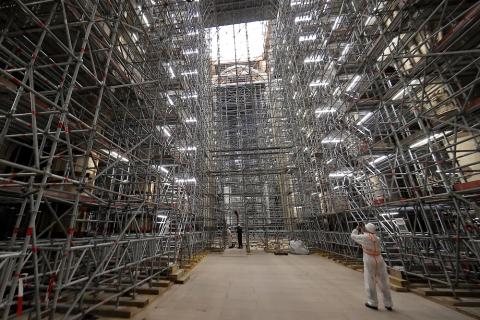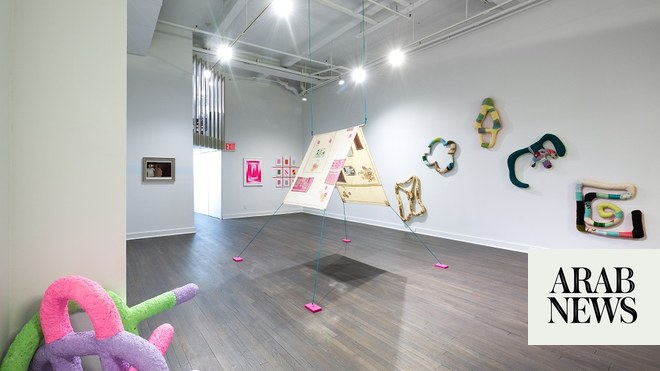
Millions around the world were in a state of shock when Paris’ beloved Notre Dame Cathedral was engulfed in flames last April. Having survived the turmoil of the French Revolution and two World Wars, the revered 850-year-old Gothic-style monument suffered the collapse of its spiral and wooden roof and damage to its high altar. One commentator wrote: “The very heart of France and the soul of Europe have been suddenly and viciously ripped out.”
The day after the blaze broke out, Jack Lang — president of Paris’ Insitut du Monde Arabe (IMA) — joined forces with the French-Lebanese art collector and champion of Arab artists Claude Lemand to set up a tribute to Notre Dame from Arab artists. Deeply saddened by the damage caused by the fire, Lemand started contacting artist friends, to see if they would be wi
illing to contribute commemorative works of art.
When I was watching this tragedy unfold on television, it reminded me of the beginning of the civil war in Lebanon,” Lemand told Arab News. “Notre Dame is a historical building that doesn’t belong just to French and European civilization, but to all of humanity. The Arab artist — like his European counterpart — has the right to convey his feelings and admiration towards this monument.”
Running through December 20, “Arab Artists’ Tribute to Notre Dame” showcases four new artworks created by contemporary artists from the Arab diaspora in response to the fire and its aftermath.
The renowned Iraqi artist Dia Al-Azzawi is one of them. His symbolic acrylic-on-3D-wood panel portrays a profile of the cathedral guarded by a carved-out cross — standing out in the midst of a red mass that not only represents the fire, but also rebirth.
Another contribution comes in the form of an abstract painting by the French-Moroccan painter Najia Mehadji. Completed in a single broad brushstroke, the painting’s dominating blue (a color associated with the Virgin Mary) swirl hints at the shape of the Madonna and Child statue that stands inside Notre Dame.
Montpellier-based Mohamed Lekleti’s mixed-media canvas is a conceptual work potraying “the duality of the world,” divided into two halves: good and evil. Lekleti’s work reminds the viewer of life’s inevitability, and to accept that events are sometimes beyond human control, but that taking action — no matter how slow or small — to heal wounds is important, as emphasized by the artist’s depiction of a hand sewing a thread.
Syrian figurative artist Boutros Al-Maari contributes a circular canvas illustrating fictional characters from Victor Hugo’s iconic novel “The Hunchback of Notre Dame” surrounding the burning cathedral. Inspired by his own heritage, Al-Maari depicts Hugo as a ‘hakawati’ — a storyteller in Damascus’ old cafés. It is a scene of both anguish and hope; of men crying in disbelief and the Virgin Mary being consoled with the offering of a flower.
According to Lemand, a second part of the exhibition will materialize early next year, exhibiting a new roster of artists.
“The goal of this exhibition is neither political nor financial,” he explained. “We just wanted to give an opportunity for Arab artists to present a brighter image of the region — far from the violence, the killing, and religious strife that have in recent years given the world a miserable image of the Arab world.”












